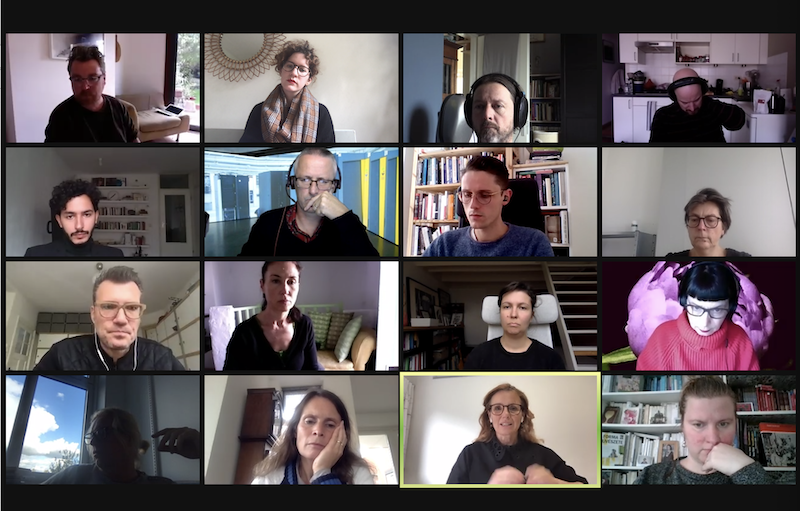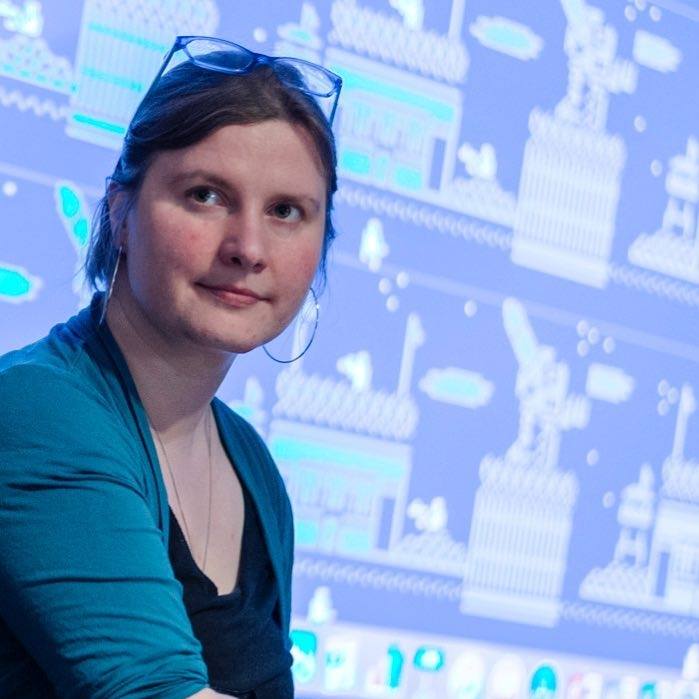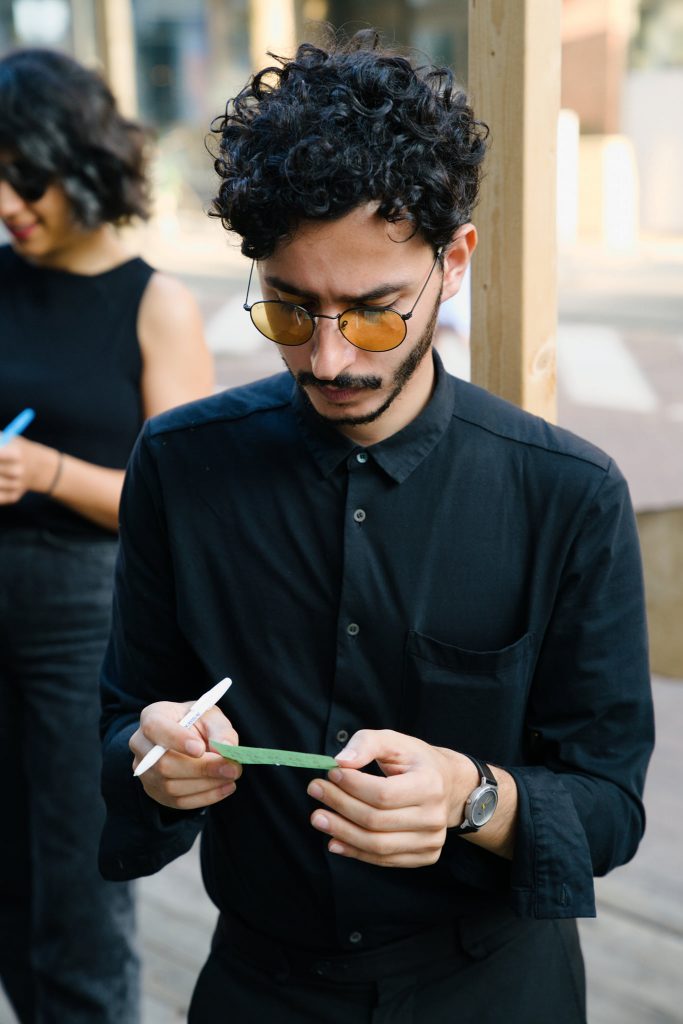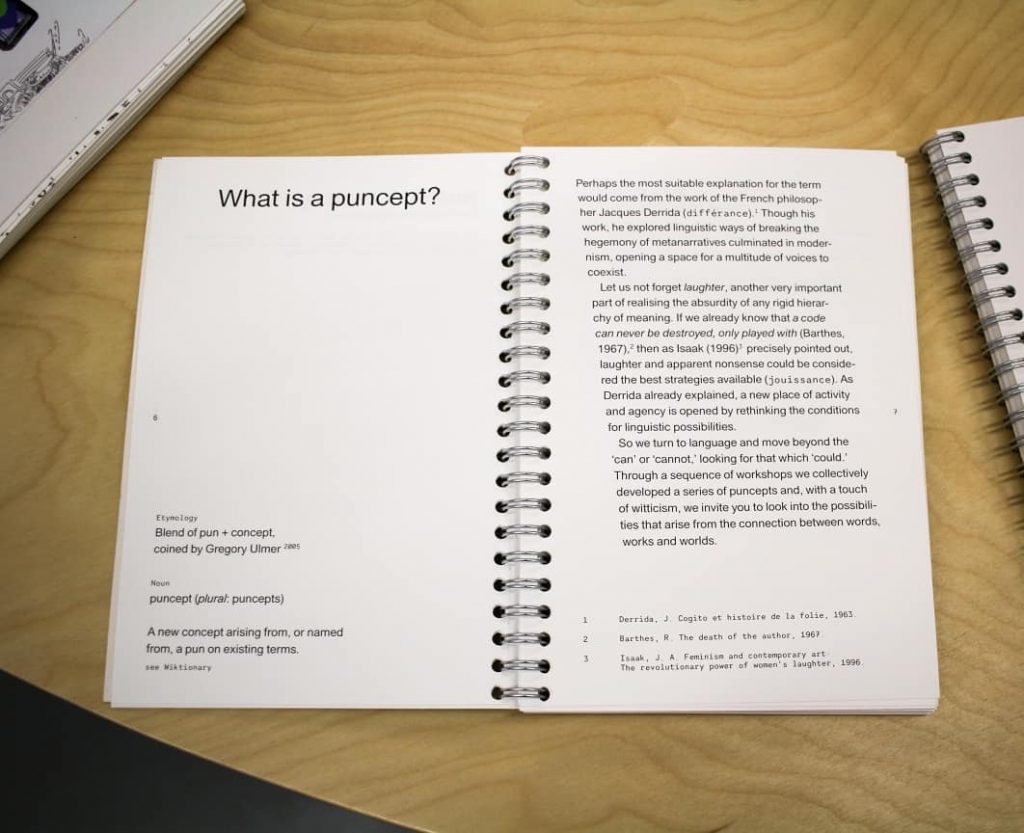
New members:
Agnes Bakk (MOME) her research focuses on immersive media, theatre and VR.
Ester (TU Dublin) research on Narratives of the Internet
Michael Haldrup (Roskilde) – Replacing Connie. Performance Design.
Countdown to the end of the project (31 Aug 2022):
– 22 months
– 98 weeks
– 686 days
News:
– Tracking of working hours needs attention. Make sure you write down the hours you spend developing content for the IO but also register the hours spent on things that are beneficial to the project (your daily projects that can contribute to the project).
– First report draft was submitted successfully. It takes up to 6 weeks for it to be evaluated so the feedback will be shared during our next bi-monthly meeting (Dec 8th)
– NEW! Monthly meetings with the Project Board will be scheduled monthly for 45 mins. (Project board members: Roger, Liesbeth, Noel, Patrick, Michael and Daniel)
– The budget cannot be used to pay external parties.
Advances per IO:
IO4:
– Collecting Transdisciplinary examples from different institutions.
– Working on a transdisciplinary module of 6EC.
– IO4 will join forces with IO1 to prepare the student workshop in February.
IO3:
– Teacher training program. Currently focusing on practical issues.
– Online event, 3 days long, in spring.
– Discussing the agenda, what do we want to achieve and how to structure it?
IO2:
– Michael will be replacing Connie (since Connie got a new job) Connie will continue to participate in some of our group meetings.
– Exploring the notion of care as something that we can try to think of design and address when collaborating with different institutes.
– Action task: Each institute to submit their Code of Conduct to Michael or Connie.
IO1:
– Trying to collect case studies from all different institutes to see what kind of transdisciplinary work is currently going on.
– Discussing the current experiences in the RASL minor. (https://growingsyllabi.hotglue.me )
– Glenn presented his project “What is an Island”
Project Board meeting:
The representatives of the project board will meet monthly to take a closer look at each IO to avoid repetitive content and inform each IO team on the advances.
– Each intellectual output has 4 tasks. I’ll attach them as an annexe for each iO team to use as references.
General conclusions:
The idea to ask students why they would like to join the student workshop and what would they find interesting to learn within the workshop.
Check within the participating institutes who’s teaching using transdisciplinary teaching methods. Find new ways of collaborating for the workshop in February and later on.
4 tasks per Intellectual Output
IO1:
Tasks 1.1 Content discussion (all partners) (Sep. 2019)
The IO leader, EUR, in collaboration with WdKA and Codarts to ensure the A&S composition, presents first ideas on which methods to develop during the Kick-of Meeting (September 2019). These ideas will be prepared based on a literature study, international best practices and on the experiences and expertise of the partners that have shared previous knowledge and experience before the start of the project. During the meeting, four transdisciplinary education methods will be selected.
Task 1.2: First draft (EUR, ZHdK, WdKA (Sept. 2019 – June 2020).
A first draft of the methods will prepared by EUR, ZHdK and WdKA. After the kick-off meeting, all partners have to provide detailed input from their experience to the IO leader, which will be used to prepare the first draft. The first draft of the methods will be tested during the first Intensive Study Programme (C1, June 2020). Feedback will be obtained from teachers, students and other participants.
Task 1.3: Updated version (EUR, ZHdK, WdKA) (June 2020 – June 2021)
Using the feedback from teachers, students and participants (minimally using questionnaires and interviews), the first draft will be improved and a second draft will be prepared. The second draft of the methods will be tested during the second Intensive Study Programme (C2, June 2021). Again, feedback will be obtained from teachers, students and participants.
Task 1.4: Final version (EUR, ZHdK, WdKA) (July 2021 – July. 2022)
The final version of the methods will be prepared using the feedback received from teachers, students and stakeholders during the second Intensive Study Programme (C2,). The final version of the methods will be presented by EUR at the Final Conference (ME1, June 2022) and will be made available online (amongst others through publication at the RASL Hybrid Publications Platform).
IO2:
Tasks 2.1 Content discussion (all partners) (Sep. 2019)
The IO leader, Codarts, presents first ideas on the content of the Stakeholders Code of Conduct to develop during the Kick-of Meeting (September 2019). These ideas will be prepared based on a literature study, international best practices and on the experiences and expertise of the partners that have shared previous to the start of the project. During the meeting, agreement on the content of the code of conduct will be pursued.
Task 2.2: First draft (Codarts, RUC) (Oct. 2019 – June 2020)
A first draft of the stakeholders code of conduct will prepared by Codarts and RUC. After the kick-off meeting, all partners have to provide detailed input from their experience to the IO leader, which will be used to prepare the first draft. The first draft of the code of conduct will be tested during the first Intensive Study Programme (C1, June 2020). Feedback will be obtained from teachers, students and stakeholders.
Task 2.3: Updated version (Codarts, RUC) (July 2020 – June 2021)
Using the feedback from teachers, students and stakeholders (minimally using questionnaires and interviews), the first draft will be improved and a second draft will be prepared. The second draft of the code of conduct will be tested during the second Intensive Study Programme (C2, June 2021). Again, feedback will be obtained from teachers, students and stakeholders.
Task 2.4: Final version (Codarts, RUC) (July 2021 – Aug. 2022)
The final version of the stakeholder code of conduct will be prepared using the feedback received from teachers, students and stakeholders during the second Intensive Study Programme (C2, XXX). The final version of the code of conduct will be presented by Codarts at the Final Conference (ME1, June 2022) and will be made available online (amongst others through publication at the RASL Hybrid Publications Platform).
IO3:
Tasks 3.1 Content discussion (all partners) (Sep. 2019)
The IO leader, TUD, presents first ideas on the content of the Transdisciplinary Teacher Programme during the kick-off meeting (September 2019). These ideas will be prepared based on a literature study, international best practices and on the experiences and expertise of the partners that have shared previous to the start of the project. During the meeting, agreement on the content of the Transdisciplinary Teacher Programme will be pursued.
Task 3.2: First draft (TUD, EUR and Codarts) (Oct. 2019 – June 2020)
A first draft of the Transdisciplinary Teacher Programme will prepared by TUD, EUR and Codarts. After the kick-off meeting, all partners had to provide detailed input from their experience to the IO leader, which will be used to prepare the first draft. The first draft of the teacher programme will be tested during the first Intensive Study Programme (C1, June 2020). Feedback will be obtained from teachers, students and stakeholders.
Task 3.3: Updated version (TUD, EUR, Codarts) (July 2020 – June 2021)
Using the feedback from teachers, students and stakeholders (minimally using questionnaires and interviews), the first draft will be improved and a second draft will be prepared. The second draft of the Transdisciplinary Teacher Programme will be tested during the second Intensive Study Programme (C2, June 2021). Again, feedback will be obtained from teachers, students and stakeholders.
Task 3.4: Final version (TUD, EUR, Codarts) (July 2021 – Aug. 2022)
The final version of the Transdisciplinary Teacher Programme will be prepared using the feedback received from teachers, students and stakeholders during the second Intensive Study Programme (C2, June 2021). The final version of the Transdisciplinary Teacher Programme will be presented by TUD at the Final Conference (ME1, June 2022) and will be made available online (amongst others through publication at the RASL Hybrid Publication Platform).
IO4:
Tasks 4.1 Content discussion (all partners) (Sep. 2019)
The IO leader, MOME, presents first ideas on the content of the Transdisciplinary Student Programme during the Kick-of Meeting (September 2019). These ideas will be prepared based on a literature study, international best practices and on the experiences and expertise of the partners that have shared previous to the start of the project. During the meeting, agreement on the content of the Transdisciplinary Student Programme will be pursued.
Task 4.2: First draft (MOME, WdKA, EUR) (Oct. 2019 – June 2020)
A first draft of the Transdisciplinary Student Programme will prepared by MOME, WdKA and EUR. After the kick-off meeting, all partners had to provide detailed input from their experience to the IO leader, which will be used to prepare the first draft. The first draft of the student programme will be tested during the first Intensive Study Programme (C1, June 2020). Feedback will be obtained from teachers, students and stakeholders.
Task 4.3: Updated version (MOME, WdKA, EUR) (July 2020 – June 2021)
Using the feedback from teachers, students and stakeholders (minimally using questionnaires and interviews), the first draft will be improved and a second draft will be prepared. The second draft of the Transdisciplinary Student Programme will be tested during the second Intensive Study Programme (C2, June 2021). Again, feedback will be obtained from teachers, students and stakeholders.
Task 4.4: Final version (MOME, WdKA, EUR) (July 2021 – Aug. 2022)
The final version of the Transdisciplinary Student Programme will be prepared using the feedback received from teachers, students and stakeholders during the second Intensive Study Programme (C2, XXX). The final version of the Transdisciplinary Student Programme will be presented by MOME at the Final Conference (ME1, June 2022) and will be made available online (amongst others through publication at the RASL Hybrid Publication Platform).



